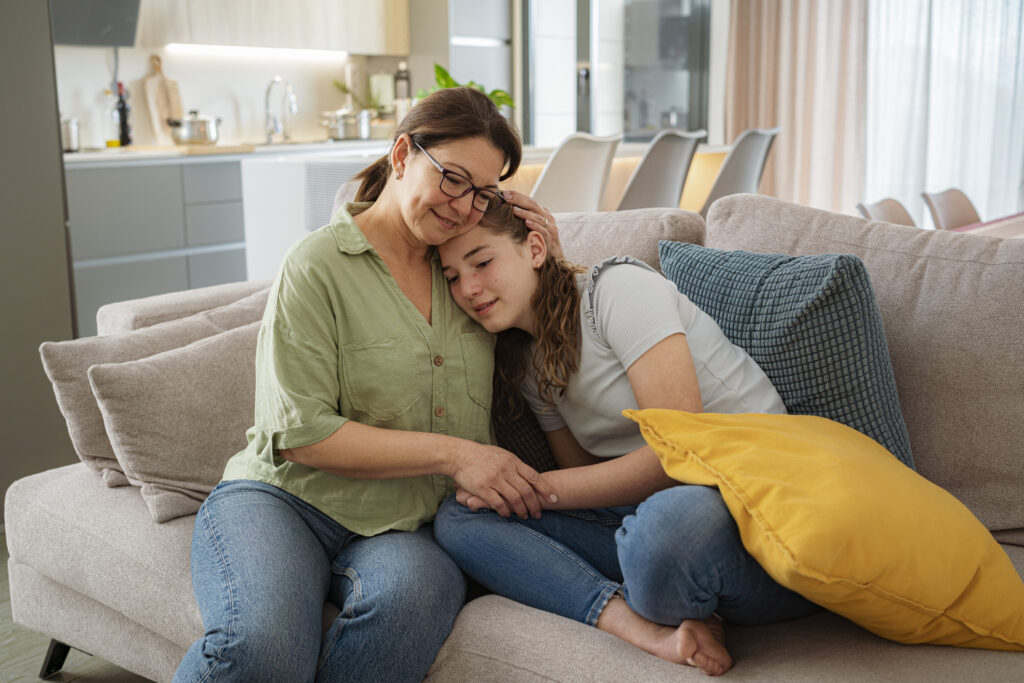Introduction
Navigating the emotional landscape of foster care can be a unique journey filled with profound challenges and rewarding milestones. As foster carers, understanding and responding to the complex behaviours of the children in your care is crucial. Children entering foster care often bring with them layers of past experiences—sometimes wound tightly with trauma—that influence their present-day actions and emotions. Without understanding the “why” behind these behaviours, it’s easy to misinterpret or feel overwhelmed by their expressions.
In this guide, we’ll delve into how trauma and attachment theory impact children’s behaviour, the significance of co-regulation, and provide practical strategies to create a supportive environment. You’ll gain insights into fostering stronger relationships with your foster children while navigating both the little daily struggles and larger emotional storms. Ready to explore how we can build nurturing environments and support our foster children’s development together? Let’s take a closer look.
Foundation: Understanding Trauma and Attachment
What is Trauma?
Trauma is any experience that overwhelms a person’s ability to cope. For children, these experiences might include early neglect, abuse, or sudden changes in their environment. Such experiences can leave deep imprints on a child’s developing brain, influencing how they react to stress, form relationships, and see the world.
The Link Between Trauma and Behaviour
Children often communicate through behaviour. When they’ve experienced trauma, their behaviours might include heightened emotional responses or what might seem like ‘overreactions.’ It’s important to remember these are not deliberate choices but manifestations of an internal struggle.
Challenges for Foster Children
Imagine starting your life in a chaotic environment, where the adults around you were either unable or unavailable to meet your emotional needs. For many children in foster care, this is their reality. Their behaviour can reflect this uncertainty, coded with messages of fear, mistrust, and a longing for stability.
The Role of Foster Carers
As foster carers, your role is crucial. You provide not just a roof but a sanctuary where children can begin to explore trust and safety. By understanding the roots of their behaviours, you can offer empathetic responses that acknowledge their feelings and encourage healing.
Importance: The Impact of Meeting Emotional Needs
Effects of Ignoring Emotional Needs
Children may struggle to develop emotionally and socially without addressing the underlying emotional needs. This neglect can pave the way for a cycle of maladaptive behaviours, further straining relationships and hindering personal growth.
The Role of Emotional Safety
Creating an emotionally safe environment can positively influence a child’s developmental journey. Emotional safety involves consistently responding to a child’s needs with empathy, patience, and understanding.
Long-term Benefits of Empathetic Care
When children feel understood and supported, they develop healthier coping mechanisms. This compassionate approach paves the way for stronger emotional regulation, improved relationships, and a greater capacity for resilience.
Practical Strategies: Building an Emotional Safety Net
Strategy 1: Consistent Routines and Predictability
Children thrive on routines. Establishing consistent daily practices can provide a sense of security. Simple repetitive activities—like reading a bedtime story or eating meals together—can form comforting anchors in an otherwise unpredictable world.
Strategy 2: Active Listening and Validation
Listening goes beyond hearing words; it’s about understanding the emotion behind them. Validate their feelings with phrases like, “I can see why you’d feel that way,” which acknowledges their experiences and fosters trust.
Strategy 3: Teaching Emotional Regulation
Help children learn to identify and manage their emotions. Techniques can include deep breathing exercises or using visual aids like emotion cards to help them name what they’re feeling.
Strategy 4: Encourage Expressive Activities
Activities like art, music, and play can offer non-verbal children the means to express themselves. These creative outlets help children process their experiences and emotions in a safe way.
Adapting Strategies for Different Children
Each child is unique, shaped by diverse experiences. It’s crucial to adapt these strategies according to individual needs and developmental stages, ensuring they are both suitable and effective.
Advanced Applications: Deeper Techniques for Complex Situations
Understanding Dysregulation
Dysregulation occurs when a child’s emotional responses are larger than the situation would typically warrant. This might be rooted in past trauma, where their fight-or-flight responses are on high alert.
Applying Co-Regulation
Co-regulation involves you, the carer, helping the child to manage their emotional responses by providing calming support. This could be through soothing words, a gentle touch, or simply being present.
Strategies for Dealing with Specific Challenges
When faced with behaviours like aggression, consider creating a safe space where the child can express their big emotions without fear of consequences. This tells them it’s okay to feel how they feel while offering guidance on healthier expression.
Seeking Professional Help
If the journey becomes particularly challenging, seeking guidance from a child psychologist or a trauma specialist can offer additional support. Collaboration with professionals can introduce new techniques tailored to your child’s specific needs.
Conclusion
Key Takeaways
Understanding and responding to the behaviours of children in foster care through a trauma-informed lens is vital. By seeing behaviour as communication, recognising emotional needs, and applying consistent, loving guidance, foster carers are empowered to create environments of healing and growth. With patience and compassion, the journey forward can be one of profound transformation—for both the child and the carer.
Remember, you’re not alone on this journey. The connections you build today ripple through a lifetime. Keep nurturing, keep learning, and take heart in knowing the difference you’re making is invaluable.
Ready to explore further? Share your experiences or ask questions in the comments, and feel free to explore related content on trauma-informed approaches and emotional regulation techniques.
Let’s keep the conversation going and continue supporting our foster children with warmth and understanding. Your role is vital, and together we can make a transformation that echoes for generations to come.
|
ReplyForward
|


